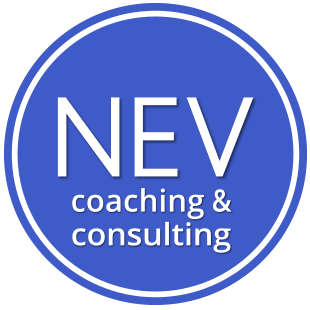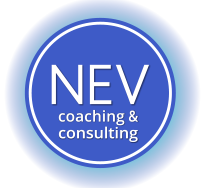 Professional development is a hot topic these days but still many people don’t really understand what it entails.
Professional development is a hot topic these days but still many people don’t really understand what it entails.
Which is completely understandable if you’ve never gone through it and you may therefore, have many questions.
While this is a very ample concept, in this post we’d like to present some basics so that you can make the best decision for how to pursue this, either within your organization or apart.
As always, we like to start by defining the term itself.
What is professional development?
In short: it is the process and opportunities that support you in continuing to grow your knowledge, skills, experience and performance within a chosen profession.
For professional development to be truly effective, it should include tools and experiences that allow you to:
- Reflect openly, honestly and rigorously on your strengths, improvement points and objectives.
- Learn and apply key knowledge and best practices in your chosen work.
- Participate in a variety of on-the-job experiences to solidify learning.
- Interact and connect with other professionals, colleagues, mentors, etc., to benefit from real-life and relevant dynamics.
- Receive and integrate continuous, relevant and constructive feedback.
- Continue to receive reliable new insights, strategies and research on topics relevant to your professional growth.
So how can I develop professionally?
There are many, many ways to do this.
But for the purpose of this post, we will focus on some that are perhaps most relevant to you:
• Professional education & training
Either provided by your organization or those you seek outside of their offerings.
• Professional coaching & consulting
Working with a quality, relevant expert who can guide you quickly and more effectively towards fulfilling your unique professional development goals.
Either your company will sponsor this or you can individually.
• Mentoring
Partnering up with a more experienced professional in your field who can answer your key questions and advise you appropriately.
This may be a regular collaboration or just once in a while, within your organization or outside of it.
• On-the-job experiences
Anything and everything that you learn from within your current job through increased responsibilities, new projects, participation in conferences and roadshows, more client-facing work, etc.
• Outside participation
Any work you do, either in leadership or support capacity, that allows you exercise and advance your skills, experience, and results.

So how do I choose what is right for my professional development?
There may be quite a few ways to do this but here we will present you four key questions to get you started:
• Do I need to work on specific skills or just more experience?
ANSWER: If you’re looking to develop on specific factors, be they boosting your strengths or improving your weaknesses, a more targeted approach is best.
The ideal is working with an expert who has the proven skills and dedication to devote to you, so either a coach or consultant.
If you are a dedicated self-learner then some quality training can also work.
As long as it is continuous and you are ready, willing, and able to do the work to truly integrate your learning.
For more general, ongoing development, you can get a mentor or simply benefit from occasional trainings, on-the-job experiences, or outside participation.
• How much time and effort am I ready to put in it?
ANSWER: Again, the quickest, most impactful work and results come from participating in more rigorous and complete programs, be they with coaches/consultants, or extended education initiatives.
But if this is not your current situation or inclination, go for more ongoing development options within your current company and position, a new (and perhaps more advanced) position, or extended insights from lighter trainings and mentorship opportunities.
• Is this urgent, or can I take my time in my professional development?
ANSWER: If there is urgency in your development, either because you’ve been given repeated feedback from relevant professional authorities, you’re feeling “the pain” of not advancing fast or enough, or there is a particular important deadline you need to fulfill, then again, a more complete, targeted program with an expert (coach or consultant) will be your best bet.
If this is not the case, then you can enjoy a more rolling development approach.
For instance, through ongoing company trainings, on-the-job learning, mentorship and the like.
• How much financial investment can I support (or achieve)?
ANSWER: If money is an issue, either for you or your organization, then it’s natural that you might prefer to participate in opportunities that don’t require a significant financial investment.
This can be company or outside trainings at a good price, mentorship (especially when already included in your organization’s development practices).
Or simply pitching to participate more in especially valuable occasions in your company’s activities.
And if you have the time and inclination, participation in outside opportunities can also be valuable.
That said, there are also a wide array of options in working with targeted experts (coaches or consultants) that do not need to be excessively expensive.
The key is doing some research.
And in certain occasions, there are low-cost options that can still get you more focused guidance in achieving your objectives.
Keys to keep in mind about Professional Development
No matter what you choose for your next professional development option(s), there are some helpful tips to consider, to help you make the right choice and ensure you get the results you’re looking for:
• Quality professional development takes TIME
Any major advances, be they getting into shape, changing habits, reorganizing your home, or raising your children (to name a few), don’t happen in an instant.
And that’s also the case for your professional development.
Even if you’re looking for quick results, it will take some time.
Any and all quality progress does.
So pace yourself and focus always on what’s a true priority for you FIRST.
• That said, it also takes EFFORT
Effort doesn’t necessarily mean “pain”, “stress”, “boredom” or “overwhelm”.
Learning and advancing does have moments of strain.
But it also has the great inspiration, encouragement and JOY of seeing yourself improve in the way that you wish.
Think of the first moment you learned to ride a bike. If it was too easy, it wouldn’t be as valuable, pleasurable or exiting when you mastered it.
And that’s the same with professional development.
• Don’t stay alone in your work and professional development
Though you may choose to just self-reflect and read, research and train on your own, don’t keep your learning and advances just to yourself.
Share them with others!
Ask for feedback and advice from their own learning and experiences.
Doing so not only makes it more real but also makes it more effective.
And sometimes a seemingly random insight from someone else, or one you’re willing to give to others, can be especially powerful.
• Application in the real world is KEY
It’s great to keep learning conceptually.
But if that learning is not applied, practiced, and assessed against outside realities, it will have limited value to you.
Only once you bring it to the world, can you truly see how well you have integrated your new knowledge and skills.
And also how best to keep moving forward to truly master them.
• Ask for support to boost your professional development
Sometimes this is simply a matter of communicating to relevant others that you are working on something, asking for guidance or patience, or moral support.
As well, just taking much needed time to focus on yourself and your current goals, and absolve yourself from other pressures, to the extent you can.
You can’t do everything, so saying YES to yourself will mean also saying NO to some other things.
And that’s just ok.

• Stay compassionate with yourself in your professional development
No matter what your personality or circumstances, there will be days you can’t or don’t feel like moving forward.
Moments when it feels too much, arduous, exhausting, downright disheartening.
And that’s COMPLETELY NATURAL and NORMAL.
This is not a straight ride, it’s full of ups and downs, steps forward and steps back.
And the key to maintaining your motivation, focus, and progress is to flow with that, not judge yourself too harshly, and keep learning from each moment.
Sometimes, it’s just about taking a break to let things settle, so that you can come back to it ever more inspired.
Do you want to boost your career and grow professionally?
We’re always here for you and love hearing about your unique experiences.
So don’t hesitate to contact us or leave a comment.




